Published on August 24, 2021
The IAF is proud to introduce the 2021 IAF Emerging Space Leaders!

These 25 students and young professionals were chosen by the IAF Emerging Space Leaders Sub-Committee composed of nine higly experienced space stakeholders. They will travel to Dubai in October 2021 to participate in the IAC and have the opportunity to extend their network, gain knowledge and meet space experts!
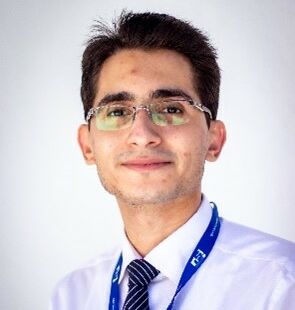
Ahmed Baraka
Ahmed is a clinical pharmacist from Egypt who is passionate about space neuroscience, space sciences, and deep space exploration. His childhood dream is to be part of the effort to make humans a multi-planetary species and to make deep space exploration a reality. Over the years, he has been working to include Egypt, Africa, and the Middle East in the next human spaceflights era.
Currently, Ahmed serves as the regional coordinator for the Middle East for the Space Generation Advisory Council (SGAC), a teaching associate at the ISU, a member of the IAF Space Life Sciences Committee, the chair of the International Outreach Committee for the Aerospace Medicine Student & Resident Organization (AMSRO), and the founder and president of the AMSRO regional chapter in Alexandria, Egypt.
Additionally, Ahmed is working on some great projects mostly dedicated to space medicine and human space exploration such as the space medicine program for Egypt in coordination with the Egyptian Space Agency, building the first Mars/Moon analog station in the Western Desert of Egypt, and a roadmap to enable Africa to have sustainable human spaceflights by 2030. In 2019, he received the African Space Leaders Award from SGAC, in recognition of these efforts, and this year has been selected as the recipient of the 2021 Space Medicine Association International Scholarship. Besides these activities, Ahmed is an active member of many space professional organizations like the Aerospace Medical Association (AsMA), the Space Medicine Association (SMA), the Planetary Society, SGAC, and the Moon Village Association.
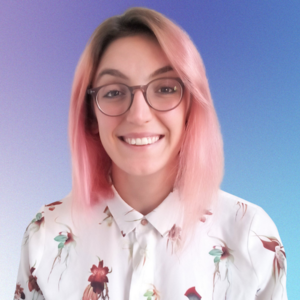
Giuliana Rotola
Giuliana Rotola is a space law and policy researcher. She recently concluded an internship at the European Southern Observatory in External Relations and Science Policy Affairs on the impact of satellite constellations on astronomy and a summer research fellowship with the Legal Priorities Project. She holds a joint bachelor's and master's degree from the University of Trento in Comparative, European, and Transnational Law and a Master of Space Studies from the International Space University (ISU). Before joining ISU, she conducted research at the European Centre for Space Law (ECSL - ESA) and in the Institut du Droit de l'Espace et des Télécommunications (IDEST), and worked at the Leuven Center for Global Governance Studies. Giuliana is also a research fellow at the Open Lunar Foundation, a 2020 Fellow in Space Studies at the Foresight Institute, and a member of the Legal Council of For All Moonkind. Within Space Generation Advisory Council (SGAC), she serves as Space Law and Policy Project Group Co-Lead, as an advisor to the Task Force on U.S. Space Legislation, as Co-lead of the Satellite Constellations team for the Space Safety and Sustainability Project Group, and she is a member of the SGAC E.A.G.L.E. Action Team on effective and adaptive governance for a lunar ecosystem.
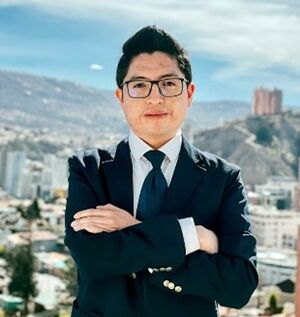
Alan Mattos
Alan Mattos obtained his bachelor's degree in Telecommunications Engineering at "Universidad Católica Boliviana" in 2010. He grew a profound interest in software developing and wireless communications during his undergraduate studies. In 2012, Alan applied to be part of the TKSAT-1 Satellite training programme in Beijing, which aimed to educate young engineers in satellite technology. Ultimately, a little over 60 engineers were selected among over 1.000 applicants, Alan being one of them. Upon completing the training programme, Alan joined the Bolivian Space Agency (ABE) to work as a Ground Segment Engineer, where he worked managing the payload of TKSAT-1, a telecommunications GEO satellite, as well as operating ground RF equipment.
In 2016, Alan was granted a scholarship to study a master’s course abroad. He chose the "Wireless Communications and Signal Processing" MSc programme at the University of Bristol. He worked on the design of low-profile antennas for his final degree project.
Upon returning to Bolivia, Alan re-joined ABE to work as a Project Engineer in the Department of Engineering and Development. There, he worked on different projects, notably on the feasibility analysis of TKSAT-2, a high throughput communications satellite for Bolivia.
Since 2019, Alan has been working as a Project Manager at ABE. He has focused mainly on projects that provide connectivity, through satellite links, to the most remote locations in Bolivia. Alan's goal is to apply satellite technology on projects that can help in bridging the digital divide and help the socioeconomic development of the most rural population of Bolivia.
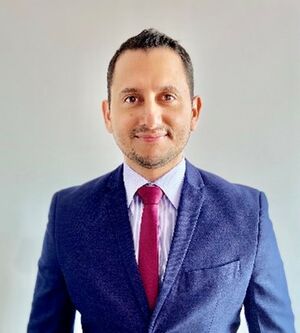
Angel Arcia Gil
Angel Arcia Gil is from Panama, and the proud father of Alaia.
He is the Regional Coordinator of the Space Generation Advisory Council (SGAC) for the North America, Central America, and the Caribbean Region (NCAC), where he has mentored students in regional Space competitions, and established initiatives such as the Open-Course of Introduction to Space Engineering for students in Central America with the support of the National Point of Contacts of Nicaragua, El Salvador, Costa Rica, and Panama.
Angel holds a Master’s degree in Electrical and Computer Engineering from The Georgia Institute of Technology, USA, and he is currently doing research for the University of Vigo in Spain, and the University of Nottingham, UK about the capabilities of small-satellites for Lunar communication and navigation. Angel has experience in several small-satellite projects developing the Telemetry, Tracking, and Command (TT&C) subsystem.
Angel is currently a Professor at the University Santa Maria la Antigua (USMA) in Panama, where he teaches engineering courses of Telecommunications and Space, with publications about applied technology in agriculture, renewable energy, and education, and with 3 technological patents.
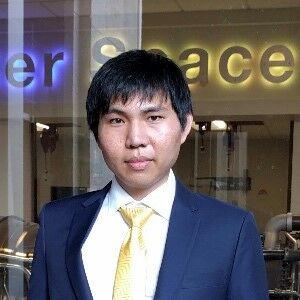
Atipat Wattanuntachai
Atipat Wattanuntachai is working on the THEOS-2 SmallSAT which is Thailand’s Earth observation satellite co-developed by Geo-Informatics & Space Technology Development Agency (GISTDA) Thailand and Surrey Satellite Technology Limited (SSTL), United Kingdom.
He leads the mechanical design and supports assembly, integration, and tests of the satellite. Moreover, he also leads the development of the space industry and space parts manufacturing supply chain in Thailand. The progress of the activity will be presented at the IAC2021.
Mr. Atipat has a multidiscipline background. His first impression in space happened when he got selected to join the CSSTEAP’s GNSS training hosted by ISRO, India, along with a multinational classmate. He then continued his study in master’s degree in aerospace engineering at Georgia Institute of Technology, USA, where he researched fleet optimization and system design. During his study, he participated in NASA DEVELOP internship program where he worked with an international team to tackle the agricultural difficulty in Thailand using geospatial data from satellites.
Along with his production engineering and industrial management degree, Mr. Atipat is combining his modest knowledge to help to create space awareness in his home country little by little. Not only working with manufacturing companies to produce space parts, but Mr. Atipat also teaching about space technology to university students as well as regularly writing and reviewing space news articles on the social media platform.
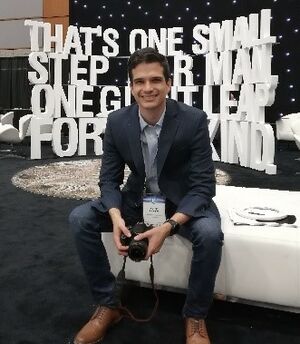
Carlos Rodriguez
Carlos is a physics and electromechanical engineering student who started getting involved with space on 2016 when he participated in a UNOOSA workshop in Costa Rica and later that year was selected to participate in a high power rockery certification in the black rock desert in Nevada, USA.
After that he kept finding ways to make space more accessible for students in Costa Rica, in 2018 he cofounded TECSpace the largest aerospace engineering student group in Costa Rica where he is president. TECSpace provides hands on experience and learning opportunities for students in a country where aerospace engineering does not exist as a career. On 2019 he participated on his first IAC in Washington as a presenter, also on 2019 he got selected as the youngest member ever to be part of the board of directives of ACAE (Central American Aeronautics and Space Association) where he has been a director since and recently got reelected as a directive until 2022. He also participated on the Mission Idea Contest by UNISEC in Tokyo and his project won the first prize in the ICECubes category. In 2021 he cofounded Orbital Space Technologies in Costa Rica the first Central American company seeking to provide access to space for experiments in microgravity and is currently working on making their first mission a reality.
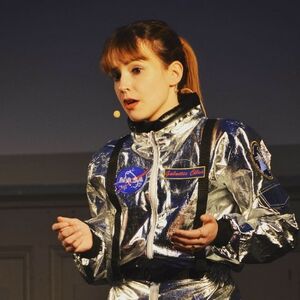
Chloé Carrière
Chloé Carrière, also known as ‘Galactic Chloé’, is a Management of Technology and Entrepreneurship student at the Federal Institute of Technology Lausanne. Besides her studies, she brings the science around space travel, astronomy and astrophysics to wider audiences by hosting her own show, ‘The Galactic Chloé Show’. As the creator of the student association Space@yourService, Chloé Carrière organises events, talks and lectures accessible to anyone interested in space travel and the science and technology behind it. Space@yourService is currently working on ‘Mission Asclepios’, a simulated analogue student-led space mission on another celestial body, due to take place in the summer of 2021. A similar program for 7-8 year olds is also lead by Chloé as part of an educational study she is running. Her commitment to promoting space travel and astrophysics has also led her to co-produce content on the topic for Swiss public broadcaster RTS and other media and becoming the NextGen Hero 2020. Chloé wishes to be one of the first women to step on the Moon, to contribute to the future of space exploration and to protecting our planet. To Chloé, international collaboration towards a sustainable future on Earth and in space are key.
Link: https://www.youtube.com/channel/UCceWRxpKQM2k_CRcvQkJCpA
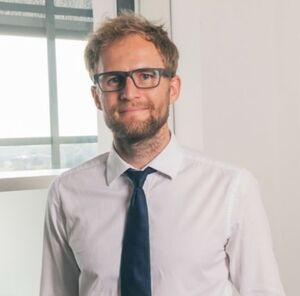
Edward Burger
Edward Burger is passionate about all things related to space, from spaceflight history to following the current exploration missions and newest startups, and finally to staying current on the developments in the law and regulation of space activities and space telecommunications. The latter is his chosen field, and he earned a master in this subject matter from the Université Paris-Sud / Paris-Saclay in 2017. While earning this degree, Edward also interned at Euroconsult, where he followed the market of launch brokers, and later was employed at the European Space Policy Institute, where he contributed to multiple research publications. In 2019-2020 he was with Leaf Space Srl, a young Italian company providing global ground-segment-as-a-service solutions, where he managed the company’s space communications regulatory compliance. Edward recently joined Astrocast SA, a Swiss provider of satellite-IoT services, where he works in the regulatory team managing the company’s satellite filing and pursuing market access authorisations. Edward also regularly participates in research work connected to legal and regulatory aspects of space activity and is a member of the International Institute of Space Law. He is looking forward to meet others from different countries and research backgrounds at the IAC 2021 in Dubai and learn about their own work and interests.
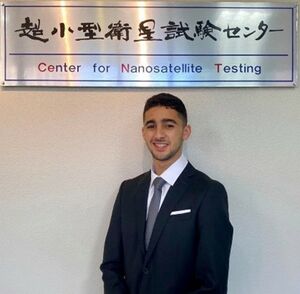
Fahd Moumni
MOUMNI Fahd, born the 14th of June 1997 in Casablanca, Morocco, has been pursuing a double Master’s degree in Materials Sciences (EEIGM - Université de Lorraine) and Mechanical & Space Systems Engineering (Kyushu Institute of Technology) under the supervision of Prof. IWATA Minoru. Fahd speaks Arabic, French, English, Spanish, German, and Japanese.
Fahd is the structure team leader of the BIRDS-5 CubeSat Project. BIRDS Projects, led by Prof. CHO Mengu, are Multinational Projects aiming to build capacity for developing countries in space engineering. BIRDS-5 will launch Uganda and Zimbabwe’s first ever satellites in addition to a Japanese payload developed with the Japan Aerospace Exploration Agency. As a fellow African, Fahd has been more than proud to take part in this adventure that will certainly catalyze the space sector of the continent.
Space is full of mysteries and International Cooperation is the only way to solve them: Solutions are found smarter and faster by bringing our diverse points of view together! Space Professionals must learn languages as communication is the essence of international cooperation! One might only have full faith in you if you speak his/her own language as it translates his/her mentality. In the BIRDS Project, using Japanese at times eliminated doubts and improved the project success rate. The future of space is in developing countries: Those countries have the envy to do great but they just need a small push! For Fahd, "Space is said to be for everyone, therefore, everyone should have access to it !"
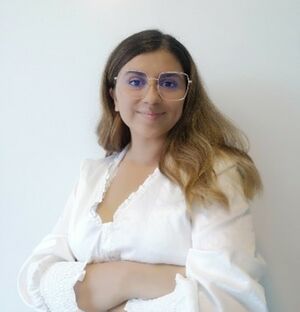
Fiorella Arias Bonilla
Biotechnology Engineering student named by the Allbiotech organization as 2021 Latin American Leader in Biotechnology for her talks and awards in the Space Mission Design field and gender equality. She is co-founder and Scientific Director of Orbital Space Technologies, the first Central American company to provide aerospace consulting, where she is currently working on their first mission related to fungi dual culturing under microgravity conditions. Also, she is part of the MUSA Project, winner of ICECubes category: first place and the IAA Award at the Tokyo 2019 Mission Idea Contest hosted by UNISEC. In addition, Fiorella is a recognized young activist for fighting against gender political violence and humanizing politics for actual change, she has been involved in the vindication of institutional policies such as Zero Tolerance to Discrimination and Harassment, and the formation of new autonomous student groups for social political activism, where she has also been involved in promoting solid actions for narrowing the gender pay gap, increasing representation of women in STEM and children access to early science inspiration workshops.
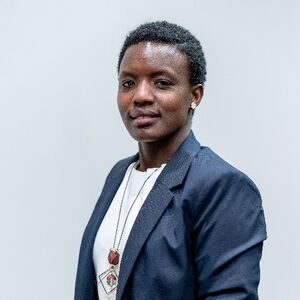
Gladys Ngetich
Dr Ngetich is a Rhodes Scholar and a Schmidt Science Fellow, currently working as a Postdoctoral Fellow at Space Enabled Research Group at MIT. Her postdoctoral research focuses on wax-based propellants for launch and in-space propulsion for small-satellite missions. Gladys obtained her PhD from the University of Oxford where she researched advanced techniques for cooling jet engines. Before the University of Oxford, she pursued BSc in Mechanical Engineering at Jomo Kenyatta University of Agriculture and Technology in Kenya. Gladys has a deep interest in the space sector - particularly the use of space to support sustainable development goals. She hopes to use her knowledge, network, and skills to enrich Kenya's space sector in the future.
Outside research, Gladys enjoys sports. She played soccer for the University of Oxford Women Soccer team. She was also an Oxford Blue athlete for 400 m Hurdles. Gladys is passionate about empowering women and girls - she heads Iluu; an organization headquartered in Kenya that empowers women.
Gladys has been a recipient of many other notable awards and recognitions including; being named among Kenya's Top 40 Under 40 Women, MIT’s Rising Star in Aerospace, International Gas Turbine Institute Young Engineer Award, UK Rare Rising Star, Skoll World Forum Fellowship, and nominated twice for the McKinsey's Next Generation Women Leaders Award.
Recently, Gladys’ research and her inspirational academic journey have been featured in Nature and twice in BBC Science News. Gladys is also a budding author; she recently published a book - The Bold Dream: Transcending the Impossible.
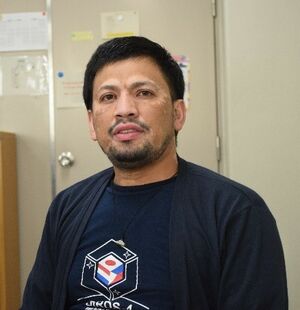
Hari Ram Shrestha
Hari Ram Shrestha is a Nepalese Ph.D. student under the Laboratory of Lean Satellite Enterprises and In-Orbit Experiments (LaSEINE) at Kyushu Institute of Technology (Kyutech). He is taking Electrical and Space Engineering with the Japanese Government’s (MEXT) scholarship through the United Nations/Japan long term Fellowship Programme (PNST). He has a Master's degree in Applied Science for Integrated Systems Engineering (SEIC) at Kyushu Institute of Technology. He has been part of different satellite projects in Kyutech such as BIRDS-41U CubeSats, 6U CubeSat, and a 3U CubeSat project. His work focuses in satellite's electrical power subsystem and backplane interface board design, development, test, and verification. Furthermore, he has been involved in the planning and operation of the ground stations for the BIRDS 3 and BIRDS 4 satellites. He is a staff member of the Nepal Academy of Science and Technology (NAST). He worked in renewable energy, experimental training for science teachers, and operating the X-Ray Diffraction (XRD) system at the material science and nanotechnology unit. Following the 2015 big earthquake in Nepal, he worked for Nepal's GPS/GNSS station installation and data collection. With his contributions as one of the two developers of Nepal’s first satellite, NepaliSat-1, he was awarded with the "Kirtimaya Rashtradeep Fourth Class 2076" medal from Nepal's Right Honorable President, Mrs. Bidya Devi Bhandari, on April 9, 2021.
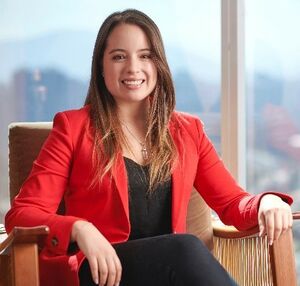
Isidora (Isi) Casas del Valle Pacheco
Isidora (Isi) Casas del Valle Pacheco is a Chilean astropreneur. She holds a bachelor’s in laws (suma cum laude) from Universidad de los Andes (Chile), where she specialized in comparative law and legal English, and minored in basic sciences. With a keen interest in air and space, she worked as an air attorney for a boutique law firm in Chile whilst undergoing a postgraduate degree in Air and Space Law in UDIMA & the Instituto Iberoamericano de Derecho Aeronáutico y del Espacio y de la Aviación Comercial in Spain. She was awarded the Secure World Foundation’s Ray Williamson Future Fund Scholarship to attend the Southern Hemisphere Space Studies Program of the International Space University hosted in Adelaide, Australia; and presented the paper resulting from the program at the International Aeronautical Congress in Bremen, supported by Secure World Foundation’s IAC Young Professionals Scholarship. Moreover, she later participated as CAPCOM for one of the Southern Hemisphere Space Studies Programs at the International Space University. Isi joined the Space Generation Advisory Council as Chile’s National Point of Contact, was Event Manager of the 6th South America Space Generation Workshop, and now holds the title of Regional Coordinator for South America. She is now part of the team at Space Hero, a global movement seeking to democratize space, while completing her Master in Entrepreneurial Management at the ESE Business School. She is a prospective member of the International Institute of Space Law and guest lecturer of Air and Space Law in various universities in Chile.
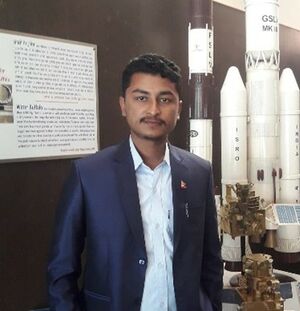
Jiten Thapa
Jiten Thapa is working as Research and Development Engineer at ORION Space which has been working on providing education and opportunites in Space Sector in Nepal. He graduated in Electrical and Electronics Engineerng from Kathmandu University, Nepal in 2018. He has worked in the design and development of SanoSat-1 which is Nepal’s first PocketQube. Currently he is working on the development of NEPAL-PQ1 which is educational kit which provides practical hands-on experience on building PocketQube. The kit has already been used for educational purpose in Nepal and outside Nepal as well.
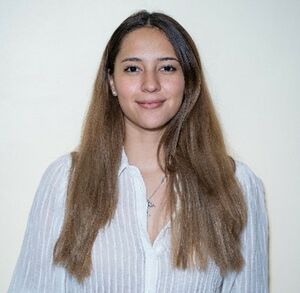
Katherinne Herrera-Jordan
My interest in space science started with physics. In 2016, when I entered the University, physics opened my eyes to the study of celestial bodies, their composition, their behavior and how to better understand them. I enrolled in an Astronomy course and from there, I began to look for points of convergence between my passion for biology and my passion for space.
I started with space research in 2017, with a project for a University course. In this project, I explored the feasibility of using oregano oleate as an antifungal against Candida albicans under simulated microgravity1 conditions. For this project, it was necessary to design and start off the first handmade prototype of a clinostat2 in order to simulate the necessary conditions. This first prototype helped to create more projects and workshops related to Space Biology and Microbiology, thus improving the availability of research in the area, in Guatemala. In 2019 I traveled to Colorado, Boulder, to be part of two projects funded by NASA: Space Biofilms and Simulated Micro-, Lunar and Martian microbial research. Small works and workshops in space sciences have been carried out in a dispersed way by different organizations and entities in the country. However, finally, in the year 2021, I co-founded the Guatemalan Association of Engineering and Space Sciences (AGICE). With the creation of this association, we seek to become the leading Guatemalan entity for the development of biological, physical and technological sciences with a spatial approach, providing training and dissemination tools necessary for the community of leaders, professionals and students interested in the subject. Step by step, I want to get more doors open so more Guatemalans, children and adults, know that the sky is no longer the limit for Guatemala and that it is possible for us to work on projects such as the launch of the first Guatemalan satellite “Quetzal-1” or other projects like the development of biological methods or innovative technologies, for the creation of environments of interest for space research.
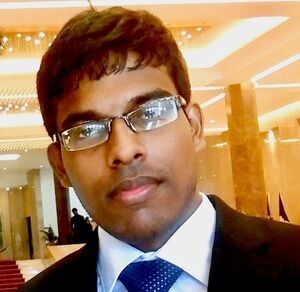
Kawsihen Elankumaran
Kawsihen Elankumaran is a PhD candidate at the Australian Centre for Space Engineering Research (ACSER) at the University of New South Wales (UNSW), Sydney, Australia. His research interests are in the domain of guidance, navigation and control of space systems with current research focused on the autonomous navigation of distributed spacecraft.
Kawsihen has a BSc Eng Hons in Electronic & Telecommunication Engineering from the University of Moratuwa, Sri Lanka. His research experience includes a research internship on Real-time systems at The University of Auckland, New Zealand and a R&D engineering career on Electronic design automation at a U.S.-based market leading company. Kawsihen was awarded the University International Postgraduate Award to pursue his PhD at UNSW, Australia where during his candidature participated in and helped organize several forums and conferences. Kawsihen is also a professional member of the American Institute of Aeronautics and Astronautics.
Kawsihen’s perspective on international cooperation in the domain of space is about its potential for the reduction of the technological barriers to entry for the space industry through research and development that helps to promote market-driven innovation.
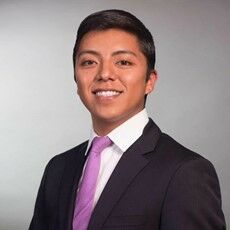
Marco Rojas
“I'm a Mexican student currently finishing a Masters's Degree in Aerospace Engineering at ISAE SUPAERO in Toulouse, specializing in Space Systems Engineering.
During my studies, I've participated in multiple student-led space-related projects in various areas such as high-powered rocketry, payload design, rocket propulsion, and Human Spaceflight.
Alongside my team at the University of Texas Rio Grande Valley (UTRGV), we participated in an International Rocketry Competition (Spaceport America Cup), where we won second place at the national level in 2016.
In my last year of bachelor studies, I led a team that attempted to design and build a small liquid rocket engine, finishing the theoretical design. As a graduate student, thanks to the support of ISAE SUPAERO, I've been able to work at the French Space Agency (CNES) as a member of the Spaceship FR team.
Spaceship FR started as an initiative by the European Space Agency (ESA), which aims to support the development of critical technologies needed for future missions to the Moon and Mars.
Acting as a Systems Engineer, my job is to implement Model-Based System Engineering methods to support the different System Engineering activities carried out in the multiple projects we work on, such as Inflatable Habitats, In-situ Resource Utilization Systems, Power Subsystems, and Robotics.
I believe that the Space sector can lead the increase of cultural diversity in the workplace. It's the perfect place to demonstrate that collaboration can lead to outstanding results and extraordinary accomplishments.”

Mariam Naseem
Mariam is currently a Visiting Scholar at the Blue Marble Space Institute of Science working on science communication projects and is also collaborating on Ocean Worlds research with a scientist at NASA Goddard. She has a global and multi-disciplinary background, having worked as a commercial space consultant, as a technology strategist in the Enterprise Innovation team at one of the largest banks in Canada, as a field engineer on an oil rig in Russia, a manufacturing engineer in a Product Development center in Texas and as a business development manager for a Toronto-based Quantum computing startup. She serves as National Point of Contact for Canada at the Space Generation Advisory Council, as coordinator for the Next Generation Plenary at the International Astronautical Federation’s Workforce Development and Young Professionals Programme Committee and as a SEDS-Canada Advisory Board member.
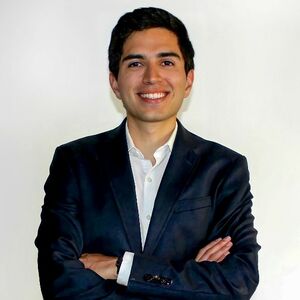
Matias Campos
Matias is an Ecuadorian engineer and space enthusiast. He graduated from Worcester Polytechnic Institute (USA), where he obtained both his Bachelor and Master of Science degrees in Aerospace Engineering and a Minor in Robotics Engineering. Additionally, Matias obtained a Physics teaching license from the state of Massachusetts. Matias started his career in Germany where we worked at the firm Silver Atena GmbH and then returned home to Ecuador to become a space entrepreneur. Matias is founder and CEO of Astralintu Space Technologies, a startup focused in providing in-orbit services that look to grant space access to new actors in Latin America and the world. Astralintu and Matias are members of the Ecuadorian Space Cluster where they collaborate with the Ecuadorian Civilian Space Agency (EXA), Sideralis Foundation, and Quantum Aerospace Research Institute in furthering technological efforts in the region. Additionally, Matias volunteers as the STEM Program Director for the Sideralis Foundation, acts as the SGAC’s National Point of Contact for Ecuador, and is an active member of the IAF Administrative Committee for Developing Countries and Emerging Communities. Matias has been recognized as an Emerging Space Leader by the International Astronautical Federation. Matias looks to lead and promote the development of the New Space industry in Latin America so the region can attain all its benefits.
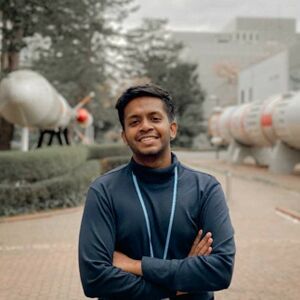
Nishanth Pushparaj
Nishanth Pushparaj is a Ph.D. candidate/ Research assistant currently enrolled at the Institute of Space and Astronautical Science, Japan Aerospace Exploration Agency (ISAS/JAXA), Sagamihara, Japan. He is specialized in spacecraft mission design, optimization, and control, primarily focusing on interplanetary multibody systems and trajectory design in complex dynamical environments around remote planetary satellites and other small bodies of the Solar system.
He is currently involved in multiple JAXA missions, such as flight dynamics-related activities of the Martian Moons eXploration (MMX) to explore Phobos and DESTINY+ towards an active asteroid Phaethon. His current work involves designing transfer trajectories between the retrograde orbits around Phobos for the proximity phase of the MMX mission. His work also includes multiple flyby trajectory designs for the DESTINY+ flyby mission and designing transfers to Mars for piggy-back missions with hybrid rocket motors.
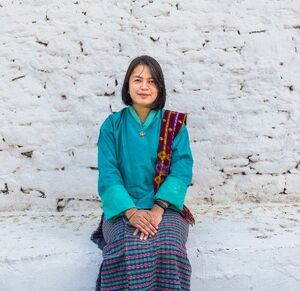
Pooja Lepcha
Pooja Lepcha is currently pursuing her doctorate degree in Electrical and Space Systems Engineering at Kyushu Institute of Technology. She received a UN/Japan Long term fellowship “Post Graduate Studies on Nano Satellites (PNST)” to pursue a master’s degree and doctoral degree in Space Engineering at Kyushu Institute of Technology. She has a bachelor’s degree in Electrical Engineering from the College of Science and Technology, Bhutan. Back home, she works in the Division of Telecom and Space under the Department of IT and Telcom, Ministry of Information and Communication of Bhutan. During her master’s degree, she was part of the BIRDS-2 team and was involved in the development of the first satellite of Bhutan, BHUTAN-1. She was also part of BIRDS-3 team developed the first satellites of Nepal and Sri Lanka. She mainly works on the Electrical Power System (EPS) of the satellite. EPS is crucial for providing uninterrupted power to the satellite both during sunlight and eclipse. She is currently a member of a 6U satellite project called KITSUNE where she also handles the EPS of the satellite along with the Store and Forward mission. Her research is on the development of low-cost sensor stations for remote data collection using satellites, especially in developing countries. She is coordinating with 10 developing countries to build low-cost sensor stations and collect data from remote places in their own countries. After completion of her PhD, she aspires to engage in STEM education and more space activities in Bhutan.

Ruvimbo Samanga
Ruvimbo Samanga is an attorney, legal scholar, and policy analyst with a master’s degree in International Trade and Investment Law. Originally from and currently based in Bulawayo, Zimbabwe, the country’s second- largest city. She has been recognised internationally for her leadership in the emerging African space economy. She is a Mandela-Rhodes Scholar, a Ban Ki-Moon Global Citizen Scholar, and a Robert Bosh Fellowship holder for the European Forum Alpbach. She has been recognised as an African Emerging Space Leader by the Space Generation Advisory Council, a Top 10 Under 30 in the African space industry by Space in Africa, and a Top Talent Under 25 in the World by the German Magazine GenZEO. She was also a part of the inaugural cohort of the American Institute of Aeronautics & Astronautics’ ASCEND, Space Traffic management Diverse Dozen. Most recently, she was recognised as one of 25 emerging young leaders by the International Astronautical Federation. She has completed research fellowships with the Open Lunar Foundation as well as the United Nations Economic Commission for Africa, and has also worked as a policy analyst for Space in Africa. In her free-time she also co-hosts the podcast and blog newmoon, while focusing her creative talents on the development of a children’s comic book series to teach space science and technology to the youth. She volunteers at IAF’S Space Traffic Management Committee and Subcommittee of New Technical Regulations, The Space Court Foundation’s legal methodology team, and the Tod’Aers Sustainable Space Studies Research Organisation. Ruvimbo was part of the first African team and winner of the 2018 International Manfred Lachs Space Law Moot Competition, which dealt with planetary defense issues and liability for damages caused in outer space. She was also instrumental in launching the first space education E-curriculum in Zimbabwe, Astro Zimba, and now manages her time between her research and her early stage geospatial startup AgriSpace, while supporting a number of initiatives in Africa and beyond.
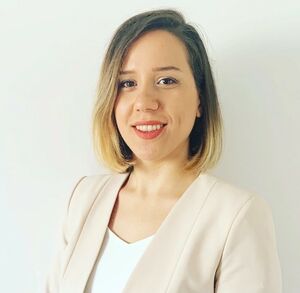
Sepideh Faghihi
Sepideh Faghihi is a Ph.D. Candidate, Graduate Research Assistant, and a member of the Ryerson Aerospace Control Systems research group (RACS) in the Department of Aerospace Engineering at Ryerson University in Toronto (Canada). She is currently performing research on the topics of spacecraft guidance, navigation, and control (GNC) in order to contribute to technologies and research required for space activities, particularly on-orbit proximity operations and exploration missions.
Sepideh holds a BSc. in Aerospace Engineering (2017) from the Sharif University of Technology. During her undergrad studies, she and her team were awarded 2nd Place in the AIAA 2015/2016 Graduate Team Aircraft Design Competition “Large Air Tanker for Wildfire Attack” for the submitted proposal entitled “Multi-Role Cost-Effective Aerial Firefighter (MCAF)”.
She is presenting the result of her research for the second year at International Astronautical Conference (IAC), since she believes that future space exploration missions such as longer-duration missions, traveling to distant destinations and longer human presence in space will be achievable through international collaboration, where the expertise of the field come together, share their ideas and achievements and contribute towards the realization of space exploration goals.
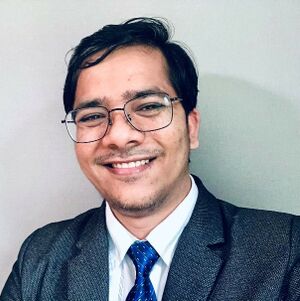
Shankar Bhattarai
Shankar is currently a postdoctoral researcher at Korea Astronomy and Space Science Institute (KASI), working as a member of KASI’s team of NASA’s satellite SPHEREx. The SPHEREx satellite is a NASA’s Medium-Class Explorer (MIDEX) program for the all-sky spectral survey in the near-infrared (0.75-5 µm) wavelengths. In 2021, he has got his Ph.D. degree in Aerospace Engineering from Space Technology Synthesis Laboratory (STSL), Department of Aerospace Engineering, Chosun University, Republic of Korea. He was one of the system engineer of multispectral earth observation 6U CubeSat named “STEP Cube Lab-II” been developing at Chosun University as part of the 2019 cube satellite contest hosted by the Korea Aerospace Research Institute (KARI).
Shankar’s early days were in Nepal, a country of Mount Everest where he did his M.Sc. in Physics from Tribhuvan University. He used to enjoy lying on a football ground at night and gazing the stars. He dreamed of stars and of travelling to distant planets, but he never ever thought that his life and passion would become one, and that he would have get chance to work on artificial satellites for understanding the history of the Universe, stars, galaxies, and even remote sensing of our own planet Earth.
The start of the New Space paradigm, the emergence of small satellite constellations has changed the development philosophy of the worldwide space-engineering field. He believes in international collaboration and technology transfer in satellite development for the socioeconomic benefit of humankind, and his ambition is to work for Nepal's Space Agency.
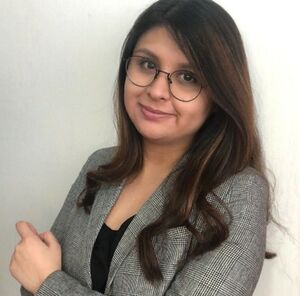
Tania Robles
Tania Robles has a bachelor degree in Mechanical Engineering and is pursuing a Master degree in Economics, Policy and Management of Innovation while she works at the Mexican Space Agency, where she leads projects for the development of young national students and professionals.
She is co-founder and former director of the Aerospace Association of the Engineering School at UNAM. National Point of Contact of SGAC in Mexico from 2016 to 2018, and Regional Coordinator from the North, Central America and the Caribbean region from 2019 to 2021.
She has received academic scholarships to attend the International Space Summer School at Samara University, Russia and in 2017 to participate in the Southern Hemisphere Space Studies at International Space University and University of South Australia in Adelaide, Australia.
In September 2018, she was recognized with the Space Generation Leadership Award in Bremen, Germany. During that year, Tania was also part of Crew 187 LATAM-II as journalist and Commander of Crew 201 MEx-1 at the Mars Desert Research Station. For the last, she was awarded with the Emerging Space Leader Scholarship of The Mars Society. In 2020 she received the Pioneer Award of SGAC.
As of today Tania is involved in research projects related to mechanisms of cooperation within Latin American countries for capacity building and space activities, in the analysis of the industry and government ecosystem of Latin American Countries for the implementation of new space startups/companies, and in the Moon Village project for Mexico.